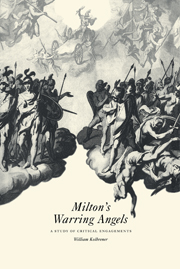Book contents
- Frontmatter
- Contents
- Acknowledgments
- Introduction
- PART I POLITICS
- PART II THEOLOGY
- 3 Introduction: Whig metaphysics
- 4 “Abnormal forms of discourse”: Milton's De Doctrina Christiana
- 5 “Milton contrasted with Milton”: multiplicity in De Doctrina Christiana
- PART III POETICS
- Conclusion: devils, angels, and Milton
- Notes
- Index
4 - “Abnormal forms of discourse”: Milton's De Doctrina Christiana
Published online by Cambridge University Press: 23 November 2009
- Frontmatter
- Contents
- Acknowledgments
- Introduction
- PART I POLITICS
- PART II THEOLOGY
- 3 Introduction: Whig metaphysics
- 4 “Abnormal forms of discourse”: Milton's De Doctrina Christiana
- 5 “Milton contrasted with Milton”: multiplicity in De Doctrina Christiana
- PART III POETICS
- Conclusion: devils, angels, and Milton
- Notes
- Index
Summary
I assume that no one thinks you should look for truth among philosophers and schoolmen rather than in the Bible!
Of Christian Doctrine (vi 400)Whig appropriations of Milton – optimistic and pessimistic varieties alike – have often been presupposed upon philosophical languages which insist upon the inflexibility of metaphysical distinctions organized as hostile pairs. The competing claims – raised after the discovery of Milton's De Doctrina Christiana in 1824 – whether Milton was either a philosophical monist or dualist, heretical or orthodox, mirror in metaphysical terms the controversy over Milton's politics. As we have already seen, for Stanley Fish, claiming to oppose a tradition of liberal commentators, the polarity is clear: Milton as a poet of “democratic liberalism,” or, as Fish himself advocates, a poet of “revolutionary absolutism.” On Fish's horizon, there is either the “democratic” or the “absolutist” Milton – the Milton of the satanic or angelic camp. The claims that Milton adhered to and promulgated a philosophical monism or dualism lead to a variety of similar alternatives: Milton the angelic apologist for an eighteenth-century Anglican orthodoxy against Milton the satanic avatar of a radical monist theology, or, in a different lexicon, Milton the orthodox Christian against Milton the antinomian radical.
Recent debates about the provenance of De Doctrina Christiana, spurred on by William B. Hunter's claim in 1992 that Milton was not the author of the theological tract, has provided the latest context for the appropriation and construction of the antithetical visions of the canonical Milton. Indeed, far from being merely an arcane scholarly quibble about textual provenance, the recent debates played out in Studies in English Literature attest to the extent to which the ambiguities of Milton's texts continue to produce opposed and conflicting images of the poet.
- Type
- Chapter
- Information
- Milton's Warring AngelsA Study of Critical Engagements, pp. 63 - 83Publisher: Cambridge University PressPrint publication year: 1997

